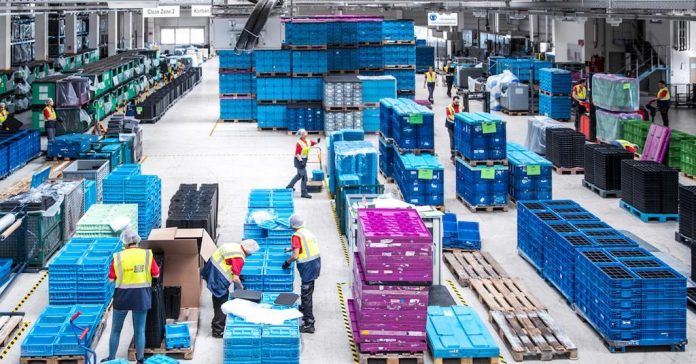The Suppliers Partnership for the Environment (SP) – an association of global automakers and their suppliers working together to advance environmental sustainability through the automotive supply chain – has announced the publication of a newly updated guidance document, Sustainable Packaging Specification Recommendations for Automotive Manufacturing Operations.
The document is designed to provide straightforward industry-supported guidance to help automakers and their suppliers source sustainable packaging designs for use in automotive manufacturing operations, based on proven best practices that have been implemented by industry environmental sustainability leaders.
Building on an earlier sustainable packaging guidance published by SP in 2020, this new document was produced through a collaborative process by the Suppliers Partnership for the Environment (SP) Sustainable Materials Work Group Sustainable Packaging Sub-Team, whose members include automotive original equipment manufacturers such as Ford Motor Company, General Motors, Honda Development & Manufacturing America, Stellantis, Toyota Motor North America, and their suppliers. The process to review and update the guidance was co-chaired by Magna International and Toyota Motor North America.
“Toyota is working to reduce the use of packaging and wrapping materials in our operations as we work toward our long-term goal to support a recycling-based society, and we expect our suppliers to undertake similar activities. Through this collaborative project, we are working to provide tools and resources to help the industry in its drive to minimize automotive packaging waste and continually improve sustainability. We believe that by working together with our suppliers and industry colleagues through organizations like SP, we can collectively scale up our positive impacts and make a significant difference for the environment,” said Matt Marshall, Supply Chain Sustainability, Toyota Motor North America.
Newly added in the latest version of the guidance document is information on the viable recyclability of 35 different packaging material types and designs commonly used in the automotive industry in the United States. The guidance also includes new information on common packaging attachment methods that can be detrimental to recycling, as well as information on alternative designs that do have viable outlets for recycling in key automotive regions. This information is intended to help support further consideration of opportunities to minimize automotive packaging waste and address barriers to recyclability in the design phase, where possible.
“When considering materials to create a packaging design it is important to think about not only the quality and performance, but also the sustainability and recyclability, of those material choices. We brought in packaging and sustainability experts from across the value chain and developed a list of common packaging designs that can create a challenge for recycling, as well as a list of alternative designs that tend to be more viably recyclable. We rely on our packaging engineers to design packaging that minimizes environmental impacts, and these new guidelines are a strong step forward in providing consistent information to help the industry source more sustainable packaging” said Bridget Grewal, Director of Packaging Continuous Improvement, Magna International.
The SP Sustainable Materials Work Group is recommending that the sustainable packaging strategies outlined in the guidance document be entered into automotive companies’ product sourcing considerations, where appropriate, and distributed widely across the automotive supply chain as best practice guidance.



















